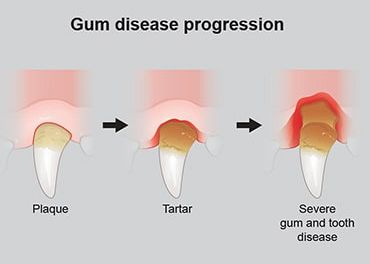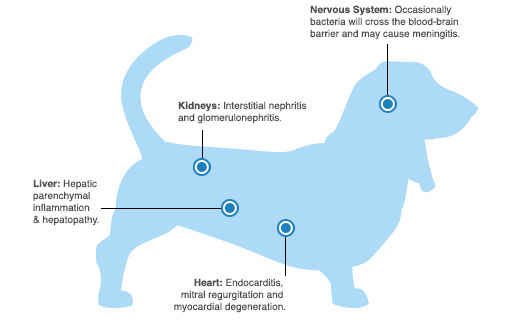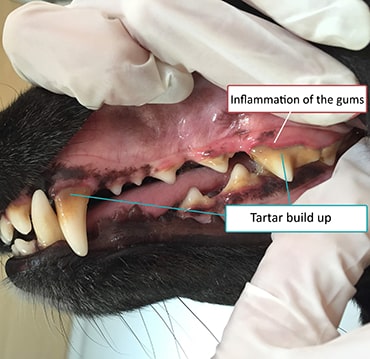18th Feb 2021
ORAL HEALTH

One thing as owners we often overlook in our canine companions is their oral health. Many dogs suffer with bad breath but a build-up of plaque and tartar can lead to more serious health issues and if left untreated, tooth and gum disease can result in blood poisoning, organ disease and even death.
Some of the most common dental problems that affect dogs are: Plaque and tartar build up gingivitis, a tooth root abscess, cracked or broken teeth.
It’s estimated that around 85% of dogs over the age of 4 years will have a degree of what's called Periodontal Dental Disease.
We need to get into the habit of not only checking our dog’s mouth regularly, but brushing their teeth. By doing this you will hopefully notice any changes and be able to prevent any issues from becoming major problems.

The symptoms of dental disease in dogs include:
- Halitosis (bad breath)
- Pain or difficulty eating i.e. chewing on one side of the mouth
- Weight loss
- Plaque and tartar
- Red, inflamed, bleeding gums
- Wobbly, missing or broken teeth
- Excessive drooling
- Preferring soft food to biscuits
- A swelling on the face (can indicate a tooth root abscess)
- Pawing at/rubbing the mouth/face
- Blood stained saliva
An unhealthy mouth… A healthy mouth…


Here are some ways in which you can help your dog from becoming a statistic of Periodontal Dental Disease…
Dental checks and cleaning - Dog owners should ensure their dogs have regular dental checks. Having your pet's oral health checked at least once a year by a vet is important. Annual dental check-ups might also be required by your pet insurance provider. If you don't have them, they may decline claims for dental treatment. Early stages of gum disease will require the removal of plaque, but more advanced forms of gum disease may need some form of surgery.
Daily brushing – How often should we be brushing their teeth? In an ideal world we should be brushing them daily, but even a couple of times a week would be better than nothing at all. There are plenty of dental products on the market these days for dogs including tooth brushes and toothpaste. Introducing your dog to having its teeth brushed at a young age is a good place to start, but even with older rescue dogs, conditioning them to be comfortable with having their mouth examined and teeth brushed is important and could save you a fortune in vet fees.
Healthy diet - Dogs should not be given too many sugary foods as this will cause bacteria to build up on their teeth. Many dog owners and some veterinarians believe raw meaty bones are good for our dog’s oral health. It promotes active chewing and tearing whilst keeping teeth and gums clean. Raw food diets are also believed to promote healthier teeth and gums. Treats for chewing - You can buy natural treats that are designed to help clean your dog’s teeth as they chew on them – Yak Bars, Anco Roots are just two healthy long lasting chews. They help satisfy a dog’s natural desire, relieve stress all while making their teeth strong.
* Plaque is a build-up of saliva (spit), food and bacteria; it collects on teeth and eventually turns into a hard, brown substance called tartar. Tartar damages the teeth, causes painful, inflamed gums (gingivitis), and is full of bacteria that can enter the dogs’ blood stream causing problems for organs such as the kidneys, heart and liver.
*Gingivitis (inflamed gums) is a painful condition usually caused by plaque and tartar build up. It causes the gums to become red, sensitive and bleed easily.
* A tooth root abscess is an infection around a tooth root that develops when bacteria gets underneath the gum. Tooth root abscesses are very painful and often cause swelling on the side of the face (normally just under the eye).




